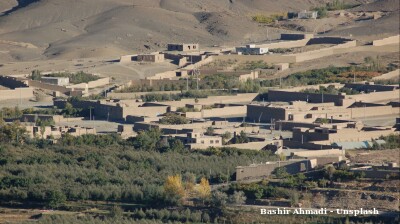Armenian Prime Minister Nikol Pashinyan told world leaders on September 27 that his government has formally set the country on a path toward joining the European Union, framing the bid as a democratic choice, while also highlighting a landmark peace agreement with Azerbaijan.
Armenia has already adopted legislation on the launch of its EU accession process, although it has not yet made a formal membership application. The shift comes after a deterioration in Yerevan’s relations with Moscow in recent years.
“In March of this year, the National Assembly of the Republic of Armenia adopted the law On the initiation of the process of Armenia's membership in the European Union, which is of great importance for our agenda,” Pashinyan said in an address to the 80th session of the UN General Assembly in New York. “This law is not only an expression of our unprecedentedly high level of relations with the European Union, but also a direct testament to our commitment to democratic values.”
Pashinyan stressed that the process was as much about strengthening domestic institutions as securing a place in the 27-member bloc. “We want to be institutionally and substantively compliant with EU standards. Without compliance with these standards, it is impossible to become an EU member,” he said. “When Armenia objectively complies with the standards of the European Union, we have two options from this point: either we will be accepted as an EU member, or we will not be accepted. If they accept it, that's fine. If they don't, we will have solved a very important problem: Armenia will be a country that meets modern, advanced standards.”
The prime minister said that the drive to join the EU was rooted in the “People's, non-violent, Velvet Revolution” of 2018, which swept his government to power. “Our aspiration to comply with European Union standards is not a matter of geopolitical, but of democratic choice,” he said.
Looking ahead to domestic reforms, Pashinyan promised a nationwide referendum on a new constitution after Armenia’s next parliamentary elections. “In order to make our achievements in the field of democracy more institutional and pro-people, we intend to take the next step in the near future: after receiving the people's mandate once again in the 2026 parliamentary elections, we will initiate a nationwide referendum to adopt a new constitution,” he told the assembly.
Pashinyan also hailed the recent breakthrough in long-running tensions with neighbouring Azerbaijan. He spoke of the declaration signed in Washington on August 8 in the presence of US President Donald Trump and Azerbaijani President Ilham Aliyev.
“That declaration stated that Armenia and Azerbaijan recognise the need to chart a path to a bright future, not predetermined by the conflict of the past,” Pashinyan said, quoting the document. “This reality, which is not and should never be subject to revision, paves the way for closing the page of hostility between our two peoples. We resolutely reject and exclude any attempt at revenge, now and in the future.”
The two sides reaffirmed commitments to open transportation links, including “unhindered communication between the main part of the Republic of Azerbaijan and the Nakhichevan Autonomous Republic through the territory of the Republic of Armenia, with mutual benefits for the Republic of Armenia in terms of international and domestic communications,” he said.
Pashinyan credited France and the European Union for earlier mediation efforts, recalling that at a 2022 European Political Community summit in Prague, Armenia and Azerbaijan first agreed to recognise each other’s territorial integrity. He extended invitations to heads of state and government to attend the bloc’s next summit in Yerevan in May 2026, calling the gathering “an important platform for European political dialogue.”
Despite the Westward pivot, Armenia’s continues to work with Russia, particularly in the energy sector. Just days before his UN address, he met President Vladimir Putin in Moscow and confirmed plans to extend the life of Armenia’s sole nuclear power plant, Metsamor, to 2036 with Russian assistance.
“We are closely cooperating with the Russian Federation and are working to extend the operation period of the Armenian NPP until 2036,” he said earlier this week, noting discussions with state nuclear agency Rosatom on new reactor technology. The Soviet-built facility currently provides about 30% of Armenia’s electricity.
Yerevan is aiming for EU accession at a time when the geopolitical balance in the South Caucasus is shifting. Russia’s influence in the region is waning, as Moscow’s resources are focussed on the war in Ukraine, along with diplomatic rifts with both Baku and Yerevan. Conversely, the US role as peacemaker between Armenia and Azerbaijan is expected to herald greater involvement for Washington in the region.
News

China, Russia, Pakistan and Iran push back on Trump ambitions in or near Afghanistan
Trump’s administration has been exploring options for keeping a military footprint in Afghanistan - a move that Russia has already said would have catasrophic consequences.

Germany preparing to enter direct negotiations with Afghanistan’s Taliban government
It has also been speculated that Germany might be readying to accept a liaison presence on the part of the Afghan government, that stops short of full recognition.

Croatian PM angrily rejects Hungarian accusations of war profiteering
"We're the good guy," says Andrej Plenkovic after Hungarian foreign minister claims Zagreb is profiting from disruptions in Russian supplies.
_1758916725.jpg)
McEwen Copper's $2.7bn Los Azules project wins Argentina approval
Argentina approves McEwen Copper's Los Azules project for RIGI tax incentives, positioning the country to re-enter copper production by 2029 as global supply deficits emerge and demand soars for the critical metal.




